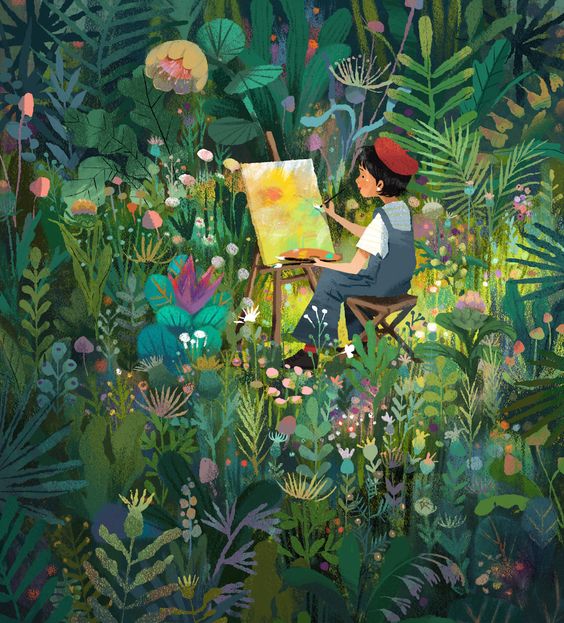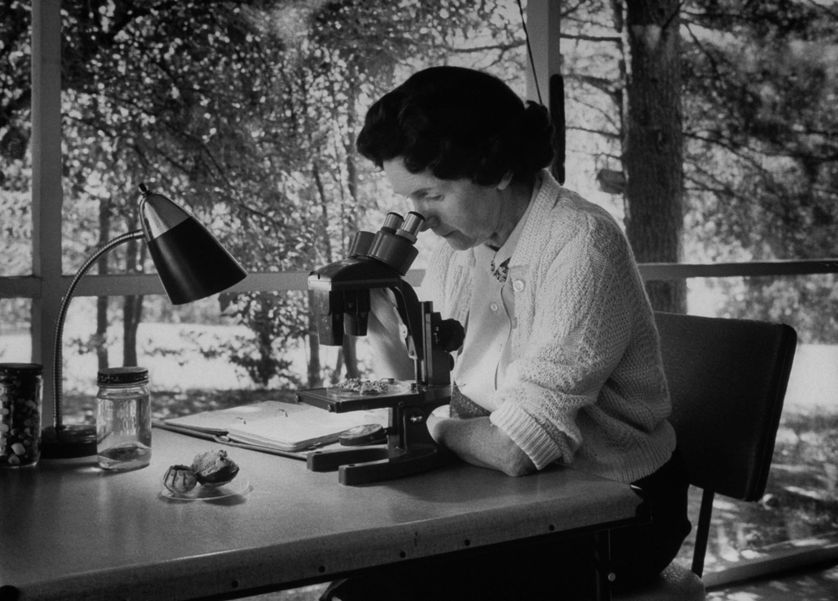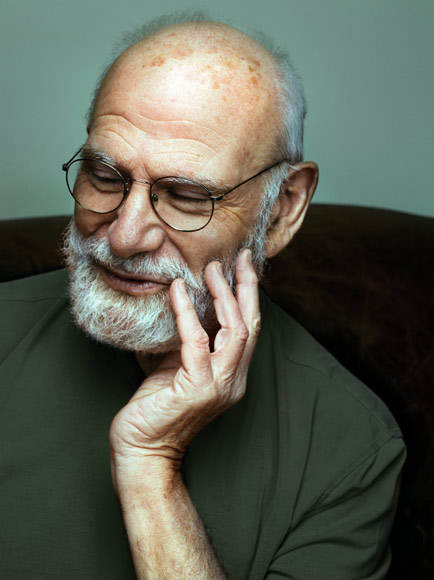
The little happiness in life is sometimes found in the backyard. Just as planting a seed may flicker hope, a walk in nature may change our ordinary mood to a state of awe, or we may overcome by delight at the sight of the first rose bud in spring.
The appeasing quality of nature kindles the human spirit as the marine biologist Rachel Carson (1907-1964) wisely emphasized it :
There is something infinitely healing in the repeated refrains of nature –the assurance that dawn comes after night, and spring after winter.

“Clearly, nature calls to something very deep in us,” says Oliver Sacks (1933-2015), the renowned neurologist and author of many books. In Everything in Its Place, he wrote :
The love of nature and living things, is an essential part of the human condition… the desire to interact with, manage and tend to nature, is also deeply installed in us […] The effects of nature’s qualities on health are not only spiritual and emotional but physical and neurological. I have no doubt that they reflect deep changes in the brain’s physiology, and perhaps even in its structure.

Having worked with a wide spectrum of neurologically disabled people, he concludes in The Healing Power of Gardens :
Even for people who are deeply disabled neurologically, nature can be more powerful than any other medication. In forty years of medical practice, I have found only two types of non-pharmaceutical therapy to be vitally important for patients with chronic neurological diseases: music and gardens.
Many studies highlight the healing power of nature on people with post-traumatic stress and in patients with physiological problems. It is not only through looking at nature but by pausing and listening to nature sounds even for a few minutes is also found to reduce stress, increase attention span, and soothe the noise of everyday life. I find this method rendering higher attention and amplifying the voice of my inner self within earshot.
Another finding I relish comes from a sincere expression of a war veteran :
- In a study measuring the healing power of nature on post traumatic stress patients, one war veteran reported that trees offered him mute, complete acceptance and he felt safe in the presence of trees. “ There is a tree, and I’m sitting here, no expectations, no questions, no nothing. ” (Poulson & Stigsdotter, University of Copenhagen)
A pioneering research carried out in the hospitals in late 1970s found :
- Post-surgical hospital patients who viewed trees out their hospital windows have recovered more quickly than similar patients who viewed walls. Their hospital stays shortened, they took less pain-killers and got fewer negative chart comments from attending staff (Ulrich, R) .
Forest bathing walks in nature are discovered to produce positive physiologial effects :
- Trees’ natural fragrance emit phytoncides which subdue human body’s fight-or-flight stance, and reduce the stress level and blood pressure. The phytoncides inhaled in the forest also increase the number of natural killer (NK) cells –a type of white blood cell that boosts the immune system (Li Q, Nippon Medical School) .

” When we look deep into nature, ” depicted Einstein ,” we will understand everything better. ” Our innate relationship with nature has a quality of reciprocity. When we cultivate nature within our reach, nature in return, generously cultivates hope, regeneration and joy of life in us homo sapiens. Through this bountiful discourse with nature, we attract the good to our gravitational field of existence, and consequently we feel good.
Duygu Bruce







